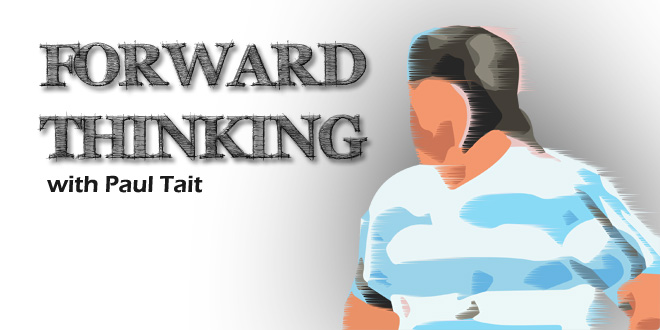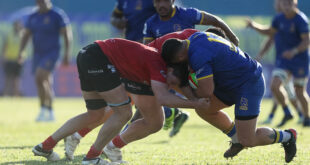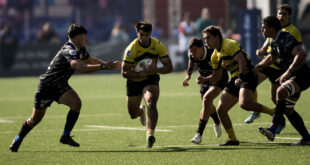With Tonga qualifying for Japan 2019 this past weekend Pool C is complete. The Oceania side officially joined Argentina, England, France and the USA in the Pool of Death. This serves as a reminder of the need to book Rugby World Cup 2019 appropriately.
Inappropriate Booking
The existing model of Rugby World Cups has been in place since 2003. That being four pools of five teams. In Rugby World Cups 2003, 2007, 2011 and 2015 there have all been glaring flaws in the booking of pool matches.
For teams including Argentina, Italy and Tonga the legacy of Australia 2003 was unfair match scheduling. Rivals had vastly different allocations for their four pool matches. Tonga faced Canada, Italy, New Zealand and Wales, playing four games in 14 days. The All Blacks had 23 days for the identical matches.
Italy had it the same as Tonga. This corresponded as 11 rest days for both countries. New Zealand had 19. Italian Coach John Kirwan threatened to pull out of the World Cup while Tonga’s Coach, Jim Love called it ‘totally ludicrous.’
Los Pumas played their fourth pool match before England had played game three. Moreover, it was so unfair that Argentina’s pool rivals, Australia and Ireland faced-off six days after Argentina’s campaign had ended.
Great improvement was made for 2007. Perfection was yet to be achieved though. Argentine stand-in captain Felipe Contepomi noted that having three rest days between playing against France and Georgia was limited. Georgia would themselves, would have a short recovery between facing Argentina and Ireland.
In Rugby World Cup 2011 Namibia had three days between playing against Samoa and Fiji. The Africans then had three days between facing South Africa and Wales. It was not a sporting schedule as Namibia was unable to adequately prepare as rivals, all of whom were stronger.
In 2015 Namibia had four days between facing New Zealand and Tonga. After a break they then had three days between playing against Georgia and Argentina. While World Rugby CEO Brett Gosper stated “we think we have got it right” the reality is the organizers got it wrong for Namibia.
When Japan shocked South Africa this was underlined. The Asians had just three days recovery before facing Scotland. The USA were in the same pool and given three days between facing South Africa and Japan. Neither Japan nor the USA had the means of competing to the best of their abilities. Instead they had to prioritize one of the two matches.
Appropriate Booking
The above underlines the obvious – priority must be given where it is needed most. Tier One powers have greater means of playing on a shorter turn-around. Moreover no Tier 1 side had to endure comparable scheduling to that of Namibia, Japan or the USA in 2015.
Those asked to back-up faced notably lower-ranked opposition. Australia had three days rest between facing Fiji and Uruguay, as did New Zealand between playing against Argentina and Namibia and France between games vs Italy and Romania. All three Tier 1 sides won both matches in question.
2019 Opening Match
Japan is in Pool A. Awaiting the Brave Blossoms are Ireland, Scotland and two qualifiers – Europe 1 and the Play-Off Winner. A win to open the tournament would be a tough ask against Ireland or Scotland. Facing a qualifier first up is therefore more interesting from a Japanese perspective.
Japan, Romania and Samoa are all Tier 2 unions. Ireland and Scotland are Tier 1. Priority thereby requires Ireland and Scotland to have shorter turn-arounds. The pivotal Ireland vs Scotland match has been placed on the opening weekend to balance in with both facing Japan later.
| # | DATE | FIXTURE | VENUE |
| 1 | Friday September 20 | Japan vs Europe 1 | Chōfu, Tokyo |
| 2 | Sunday September 22 | Ireland vs Scotland | Toyota |
| 3 | Thursday September 26 | Europe 1 vs Play-Off Winner | Kamaishi |
| 4 | Saturday September 28 | Japan vs Ireland | Sapporo |
| 5 | Tuesday October 01 | Scotland vs Play-Off Winner | Kumagaya |
| 6 | Wednesday October 02 | Ireland vs Europe 1 | Kobe |
| 7 | Sunday October 06 | Japan vs Play-Off Winner | Fukuroi |
| 8 | Wednesday October 09 | Scotland vs Europe 1 | Kumamoto |
| 9 | Sunday October 13 | Ireland vs Play-Off Winner | Ōita |
| 10 | Sunday October 13 | Japan vs Scotland | Yokohama |
Pool B
New Zealand and South Africa is the most notable fixture in Pool B. The organizers will prioritize it to enable the largest attendance possible. Positioning it in the third weekend will enable for a marquee match that weekend, at the largest venue of the tournament.
The pool can be structured around Italy, Africa 1 and the Repechage Winner. Italy’s quest to reach the Quarter Finals requires them to have their second toughest match in the final weekend of pool play. Africa 1 and the Repechage Winner both require no fewer than four day rests between matches.
Behavior at previous World Cups from both the All Blacks and Springboks goes beyond indicating that reserves will start against lower Tier opposition. This has been factored into the fixtures to also demand less of the qualifiers. Similar to the British & Irish Lions, both New Zealand and South Africa would have two teams within their rosters.
| # | DATE | FIXTURE | VENUE |
| 1 | Saturday September 21 | South Africa vs Repechage Winner | Kumamoto |
| 2 | Saturday September 21 | New Zealand vs Italy | Ōita |
| 3 | Tuesday September 24 | South Africa vs Africa 1 | Kumagaya |
| 4 | Saturday September 28 | Italy vs Repechage Winner | Fukuoka |
| 5 | Monday September 30 | New Zealand vs Africa 1 | Fukuroi |
| 6 | Friday October 04 | New Zealand vs South Africa | Yokohama |
| 7 | Saturday October 05 | Italy vs Africa 1 | Fukuoka |
| 8 | Monday October 07 | New Zealand vs Repechage Winner | Sapporo |
| 9 | Saturday October 12 | South Africa vs Italy | Toyota |
| 10 | Sunday October 13 | Africa 1 vs Repechage Winner | Kamaishi |
Pool C
Finding the means of having four or more rest days between games for the USA and Tonga is paramount. Argentina, England and France also need to have their crucial matches among themselves on weekends. This has been done below by having England, as the strongest team, finishing first.
| # | DATE | FIXTURE | VENUE |
| 1 | Saturday September 21 | France vs Tonga | Kobe |
| 2 | Sunday September 22 | England vs Argentina | Yokohama |
| 3 | Wednesday September 25 | France vs USA | Higashiōsaka |
| 4 | Saturday September 28 | Argentina vs Tonga | Kumamoto |
| 5 | Monday September 30 | England vs USA | Ōita |
| 6 | Saturday October 05 | England vs France | Chōfu, Tokyo |
| 7 | Sunday October 06 | Argentina vs USA | Toyota |
| 8 | Tuesday October 08 | England vs Tonga | Sapporo |
| 9 | Saturday October 12 | France vs Argentina | Fukuroi |
| 10 | Sunday October 13 | USA vs Tonga | Higashiōsaka |
Pool D
The group with the lowest star power is arguably Pool D. It is to contain three Tier 2 sides with Australia and Wales highly fancied to advance. Georgia and Fiji will aim to cause upsets and will need carefully planned schedules to enable this. Three day turn-arounds must be avoided.
Avoiding having Americas 2 play on a short turn-around is vital. What was asked of Uruguay in 2015 must not be repeated. Better use of the dates can ensure this carries through.
| # | DATE | FIXTURE | VENUE |
| 1 | Saturday September 21 | Wales vs Fiji | Higashiōsaka |
| 2 | Sunday September 22 | Australia vs Georgia | Sapporo |
| 3 | Wednesday September 25 | Fiji vs Americas 2 | Fukuoka |
| 4 | Friday September 27 | Australia vs Wales | Yokohama |
| 5 | Monday September 30 | Georgia vs Americas 2 | Kamaishi |
| 6 | Saturday October 05 | Georgia vs Fiji | Kumagaya |
| 7 | Sunday October 06 | Wales vs Americas 2 | Kobe |
| 8 | Wednesday October 09 | Australia vs Fiji | Chōfu, Tokyo |
| 9 | Friday October 11 | Wales vs Georgia | Kumamoto |
| 10 | Saturday October 12 | Australia vs Americas 2 | Kobe |
 Americas Rugby News Rugby news from across the Americas!
Americas Rugby News Rugby news from across the Americas!




